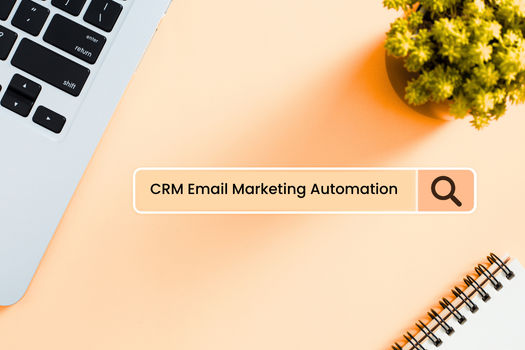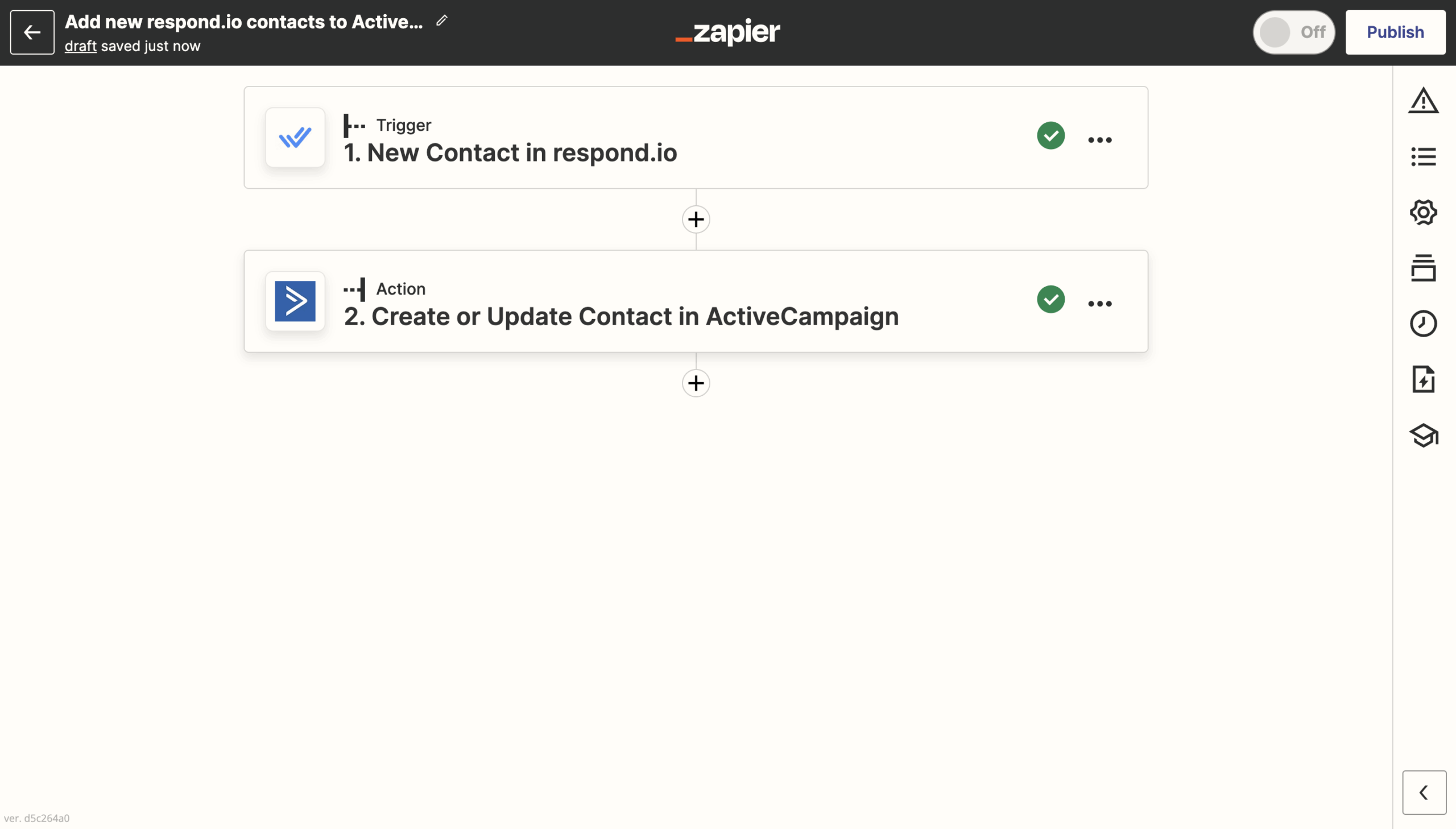CRM Email Marketing: The Ultimate Guide to Boosting Engagement and Revenue

Unlocking the Power of CRM Email Marketing: A Comprehensive Guide
In today’s fast-paced digital landscape, email marketing remains a cornerstone of successful business strategies. But simply sending out generic newsletters isn’t enough. To truly thrive, you need a sophisticated approach that combines the power of Customer Relationship Management (CRM) with the reach of email marketing. This is where CRM email marketing comes into play, offering a potent combination that can revolutionize how you interact with your audience, nurture leads, and drive revenue. This guide will delve deep into the world of CRM email marketing, providing you with the knowledge and tools you need to harness its full potential.
What is CRM Email Marketing? Defining the Synergy
At its core, CRM email marketing is the strategic integration of your CRM system with your email marketing platform. This integration allows you to leverage the wealth of customer data stored in your CRM to create highly targeted, personalized, and effective email campaigns. Unlike traditional email marketing, which often relies on broad segmentation and generic messaging, CRM email marketing enables you to tailor your communications to individual customer preferences, behaviors, and lifecycle stages.
Think of it this way: your CRM is the brain, gathering and storing all the valuable information about your customers – their demographics, purchase history, website activity, support interactions, and more. Your email marketing platform is the mouth, delivering the right message, at the right time, to the right person. When these two work in harmony, the results can be transformative.
Key Components of CRM Email Marketing
To fully grasp the concept, let’s break down the key components:
- CRM System: The central hub for all customer data, providing a 360-degree view of each customer. Popular CRM platforms include Salesforce, HubSpot, Zoho CRM, and Microsoft Dynamics 365.
- Email Marketing Platform: The tool used to design, send, and track email campaigns. Examples include Mailchimp, Constant Contact, ActiveCampaign, and Klaviyo.
- Integration: The crucial link that allows data to flow seamlessly between your CRM and email marketing platform. This can be achieved through native integrations, third-party connectors, or custom development.
- Segmentation: The process of dividing your audience into specific groups based on shared characteristics. This allows you to create more targeted and relevant email campaigns.
- Personalization: The art of tailoring your email content to individual customer preferences and behaviors. This includes using the customer’s name, referencing past purchases, and recommending relevant products or services.
- Automation: The use of automated workflows to trigger emails based on specific customer actions or events. This can include welcome emails, abandoned cart emails, and onboarding sequences.
Why CRM Email Marketing Matters: The Benefits Explained
The advantages of integrating CRM with email marketing are numerous and far-reaching. By adopting this approach, businesses can experience significant improvements in various key areas:
Enhanced Customer Segmentation
CRM systems allow for incredibly detailed customer segmentation. You can segment based on almost any data point you collect, from basic demographics like age and location to more complex behavioral data like website browsing history and purchase frequency. This granular segmentation allows you to create highly targeted email campaigns that resonate with specific customer groups.
Hyper-Personalization: Speaking Directly to Your Customers
Personalization is no longer a nice-to-have; it’s a must-have. CRM email marketing empowers you to personalize your emails in a variety of ways. You can address customers by name, recommend products based on their purchase history, and tailor your messaging to their specific interests. This level of personalization makes your emails feel less like generic marketing blasts and more like one-on-one conversations.
Improved Email Relevance and Engagement
When you send relevant emails, your customers are more likely to open them, click on links, and make purchases. CRM-driven personalization ensures that your emails are always relevant to the recipient. By delivering the right message at the right time, you can significantly boost your email engagement rates.
Increased Conversion Rates and Revenue
Ultimately, the goal of any marketing effort is to drive conversions and generate revenue. CRM email marketing is highly effective at achieving this goal. By nurturing leads, providing personalized recommendations, and streamlining the sales process, you can significantly increase your conversion rates and boost your bottom line.
Better Lead Nurturing
CRM email marketing allows you to nurture leads throughout their entire journey, from initial awareness to final purchase. You can create automated email sequences that provide valuable information, address their concerns, and guide them toward a purchase decision. This lead nurturing process helps to build trust and establish your brand as a trusted authority.
Improved Customer Retention
Keeping existing customers is often more cost-effective than acquiring new ones. CRM email marketing helps you retain customers by providing personalized support, offering exclusive deals, and keeping them engaged with your brand. By staying top-of-mind and providing exceptional customer experiences, you can foster long-term customer loyalty.
Data-Driven Decision Making
CRM email marketing provides valuable data and insights into your customers’ behavior and preferences. By tracking key metrics like open rates, click-through rates, and conversion rates, you can optimize your email campaigns and make data-driven decisions to improve your results. This iterative process allows you to continuously refine your strategy and maximize your ROI.
Implementing CRM Email Marketing: A Step-by-Step Guide
Ready to get started with CRM email marketing? Here’s a step-by-step guide to help you implement it successfully:
1. Choose the Right CRM and Email Marketing Platform
The first step is to select the right tools for your business. Consider your budget, your business needs, and the size of your audience. Research different CRM and email marketing platforms and compare their features, pricing, and integrations. Ensure that the platforms you choose can seamlessly integrate with each other.
2. Integrate Your CRM and Email Marketing Platform
Once you’ve chosen your platforms, it’s time to integrate them. Most CRM and email marketing platforms offer native integrations or third-party connectors. Follow the instructions provided by your platforms to establish the connection. This may involve entering API keys, mapping fields, and setting up data synchronization.
3. Clean and Organize Your Data
Before you start sending emails, it’s crucial to clean and organize your customer data. Remove any duplicate entries, update outdated information, and standardize your data formats. This will ensure that your email campaigns are accurate and effective.
4. Segment Your Audience
Divide your audience into specific segments based on shared characteristics. Use the data stored in your CRM to create segments based on demographics, purchase history, website activity, and other relevant factors. The more granular your segments, the more targeted your email campaigns will be.
5. Design and Create Targeted Email Campaigns
Now it’s time to create your email campaigns. Design your emails with your target audience in mind. Use personalized subject lines, engaging content, and compelling calls-to-action. Tailor your messaging to each segment to ensure that your emails are relevant and effective.
6. Automate Your Email Workflows
Automate your email workflows to save time and improve efficiency. Set up automated email sequences for welcome emails, abandoned cart emails, lead nurturing, and other common scenarios. Automation allows you to deliver the right message at the right time, without manual intervention.
7. Track and Analyze Your Results
Monitor your email campaign performance closely. Track key metrics like open rates, click-through rates, conversion rates, and revenue generated. Use these metrics to identify what’s working and what’s not. Analyze your results regularly and make adjustments to your campaigns as needed.
8. Optimize and Refine Your Strategy
CRM email marketing is an ongoing process. Continuously optimize and refine your strategy based on your results. Test different subject lines, email content, and calls-to-action. Experiment with different segmentation and personalization techniques. By continuously testing and optimizing, you can maximize your ROI and achieve your marketing goals.
Best Practices for CRM Email Marketing Success
To maximize the effectiveness of your CRM email marketing efforts, consider these best practices:
Focus on Personalization
Always personalize your emails. Use the customer’s name, reference their past purchases, and tailor your messaging to their specific interests. Personalization makes your emails feel more human and less like generic marketing blasts.
Segment, Segment, Segment
The more granular your segmentation, the more targeted your email campaigns will be. Use your CRM data to create highly specific segments based on a variety of factors. This ensures that your emails are relevant to each recipient.
Provide Value in Every Email
Don’t just sell; provide value. Offer helpful information, exclusive deals, and valuable resources. Build trust and establish your brand as a trusted authority. Your audience should look forward to receiving your emails.
Keep Your Emails Concise and Readable
People are busy. Keep your emails short, sweet, and easy to read. Use clear and concise language, and break up your content with headings, bullet points, and images.
Optimize for Mobile
Most people read their emails on their mobile devices. Ensure that your emails are mobile-responsive and look good on all screen sizes.
Test, Test, Test
Test everything. Test different subject lines, email content, calls-to-action, and segmentation strategies. This will help you identify what works best for your audience.
Respect Your Subscribers’ Preferences
Always give your subscribers the option to unsubscribe. Don’t bombard them with emails they don’t want to receive. Respect their preferences and build a positive relationship.
Comply with Email Marketing Regulations
Be sure to comply with all relevant email marketing regulations, such as GDPR and CAN-SPAM. This includes obtaining consent, providing clear unsubscribe options, and being transparent about your data practices.
Integrate with Other Marketing Channels
Don’t limit yourself to email. Integrate your CRM email marketing with other marketing channels, such as social media, SMS marketing, and website personalization. This allows you to create a cohesive and omnichannel marketing experience.
Continuously Analyze and Improve
Regularly analyze your email campaign performance and make adjustments as needed. Identify what’s working and what’s not. Continuously refine your strategy to maximize your results.
Examples of Effective CRM Email Marketing Campaigns
Let’s look at some real-world examples of effective CRM email marketing campaigns:
Welcome Emails
A welcome email is a great way to introduce new subscribers to your brand. It should be personalized, provide valuable information, and set the tone for future communications. For example, a welcome email could include a special offer, a link to a helpful resource, or a brief overview of your products or services.
Abandoned Cart Emails
Abandoned cart emails are triggered when a customer adds items to their cart but doesn’t complete the purchase. These emails typically include a reminder of the items left in the cart, a special offer to encourage the customer to complete the purchase, and a link to the checkout page. This is a highly effective way to recover lost sales.
Product Recommendation Emails
Product recommendation emails suggest products based on a customer’s purchase history, browsing behavior, or other data. These emails can be highly effective at driving additional sales. For example, if a customer recently purchased a pair of running shoes, you could recommend a pair of running socks or a fitness tracker.
Customer Onboarding Sequences
Onboarding sequences guide new customers through the process of using your product or service. These emails provide helpful tips, tutorials, and resources to help customers get the most out of your offering. This helps to reduce churn and increase customer satisfaction.
Re-Engagement Emails
Re-engagement emails are sent to customers who haven’t interacted with your brand in a while. These emails typically offer a special promotion or a reminder of the value you provide. The goal is to re-engage inactive customers and bring them back into the fold.
Tools and Technologies for CRM Email Marketing
Several tools and technologies can streamline your CRM email marketing efforts:
CRM Platforms
As mentioned earlier, CRM platforms are at the heart of your CRM email marketing strategy. Popular choices include:
- Salesforce: A comprehensive CRM platform with robust email marketing capabilities.
- HubSpot: A user-friendly CRM platform with a strong focus on marketing automation.
- Zoho CRM: A cost-effective CRM platform with a wide range of features.
- Microsoft Dynamics 365: A powerful CRM platform with deep integration with other Microsoft products.
Email Marketing Platforms
Your email marketing platform is where you design, send, and track your email campaigns. Popular options include:
- Mailchimp: A popular and user-friendly email marketing platform.
- Constant Contact: A simple and easy-to-use email marketing platform.
- ActiveCampaign: A powerful email marketing platform with advanced automation features.
- Klaviyo: An email marketing platform specifically designed for e-commerce businesses.
Integration Tools
Integration tools help you connect your CRM and email marketing platforms. These include:
- Zapier: A popular automation platform that connects thousands of apps.
- Integromat: A powerful automation platform with advanced integration capabilities.
- Native Integrations: Many CRM and email marketing platforms offer native integrations with each other.
Analytics and Reporting Tools
These tools help you track your email campaign performance and gain insights into your customer behavior.
- Google Analytics: A free web analytics service that can track email traffic and conversions.
- CRM Platform Reporting: Most CRM platforms offer built-in reporting features.
- Email Marketing Platform Reporting: Your email marketing platform will provide detailed reports on your campaign performance.
The Future of CRM Email Marketing
The future of CRM email marketing is bright. As technology continues to evolve, we can expect to see even more sophisticated personalization, automation, and data-driven insights. Here are some trends to watch:
Artificial Intelligence (AI) and Machine Learning (ML)
AI and ML are already playing a significant role in CRM email marketing. These technologies can be used to personalize email content, optimize send times, and automate complex workflows. Expect to see even more AI-powered features in the future.
Hyper-Personalization
Customers expect personalized experiences. The future of CRM email marketing will be all about hyper-personalization, tailoring your messaging to individual customer preferences and behaviors. This will require a deep understanding of your customers and the use of sophisticated data analytics.
Omnichannel Marketing
Customers interact with brands across multiple channels, including email, social media, SMS, and website. The future of CRM email marketing will involve integrating email with other marketing channels to create a cohesive and omnichannel marketing experience.
Privacy and Data Security
As data privacy regulations become stricter, it’s crucial to prioritize data security and transparency. The future of CRM email marketing will require businesses to be more transparent about their data practices and to obtain explicit consent from their subscribers.
Focus on Customer Experience
Ultimately, the future of CRM email marketing will be about providing exceptional customer experiences. By focusing on personalization, relevance, and value, you can build strong relationships with your customers and drive long-term loyalty.
Conclusion: Embracing the Power of CRM Email Marketing
CRM email marketing is a powerful tool that can transform your business. By integrating your CRM with your email marketing platform, you can create highly targeted, personalized, and effective email campaigns. This can lead to increased engagement, higher conversion rates, and improved customer retention. By following the best practices outlined in this guide and staying up-to-date on the latest trends, you can harness the full potential of CRM email marketing and achieve your marketing goals. Don’t just send emails; create experiences. Embrace the synergy of CRM and email marketing and watch your business flourish.





